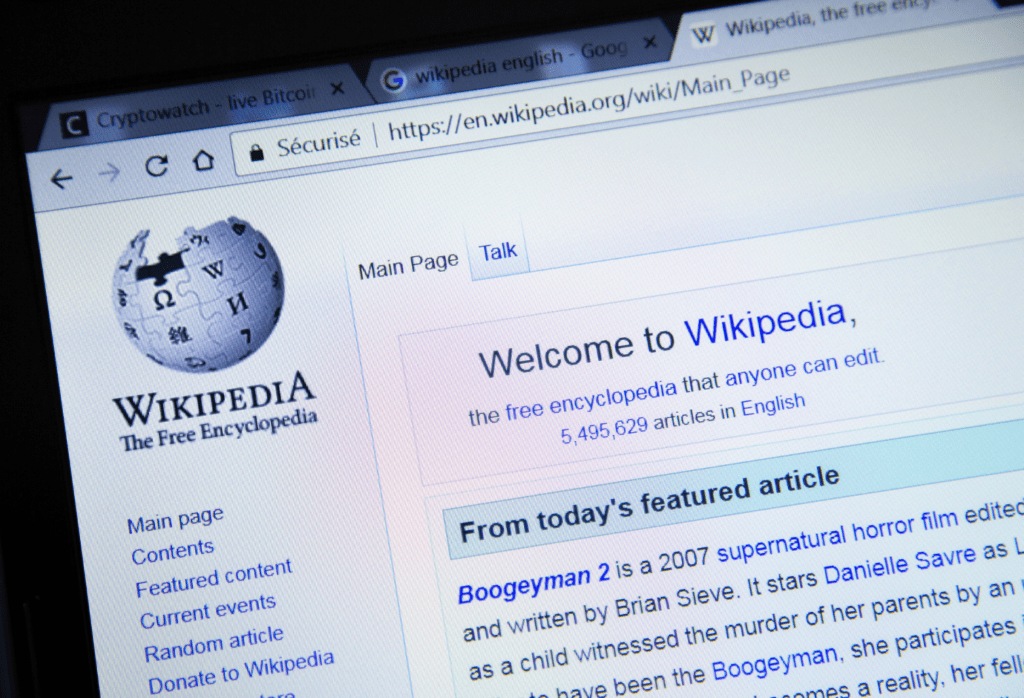Women make up just 19 per cent of all profiles on Wikipedia. A stat that Dr Melina Georgousakis wants to change.
To help make it happen, quickly, the founder of Franklin Women, will be running her second Edit-A-Thon on Thursday, in a bid to increase the visibility of women in science on Wikipedia.
The Edit-A-Thon will coincide with World Health Day, which takes place annually on April 7 to draw attention to a specific health topic of concern to people across the world. This year’s theme is titled “our planet, our health” and aims to focus on the climate crisis.
On Thursday, a number of women working in the health, medical and life sciences sectors will take to their keyboards as part of an ongoing global movement to ensure Wikipedia is more representative of diverse talent in STEMM and their contributions to society.
Participants will add and update pages to include the achievements of female health and medical researchers.
Dr Georgousakis’ organisation has partnered with biopharmaceutical company AbbVie Australia to run this Thursday’s event.
She said the success of their first Wikipedia Edit-A-Thon highlights the importance of grassroots events to increase awareness of gender bias online, but also to drive change.
“Our first #FWonWIki Edit-a-thon came about thanks to Twitter,” she told Women’s Agenda. “Members of the AbbVie Australia and Franklin Women teams had come across physicist Dr Jess Wade and her mission to improve the diversity of Wikipedia profiles.”
“In 2017 she started writing Wikipedia biographies of women and other minorities in science and engineering and really started a global movement to improve the content bias on the worlds most accessed digital encyclopaedia. Following one of her tweets in 2018, we both reached out to congratulate Jess on her work, noting that we would like to contribute to her movement. The rest is history.”
“Addressing gender bias on Wikipedia is not just about equity, it is also about ensuring that scientific discoveries and their impact on society are accurately captured,” Dr Georgousakis added in a written statement.
“When people search for information online, Wikipedia is usually among the first results that appear and as such, it plays a big role in informing people on the history of science and the role of women and other under-represented groups in the field.
“Even though scientific discoveries made by the late Rosalind Franklin, the UK researcher after whom Franklin Women is named, were crucial for determining the double-helix structure of DNA, her contributions went largely unrecognised.
“Rather, it was her male colleagues who received the accolades and went on to be awarded the Nobel Prize after her death. Now Franklin’s work is celebrated globally.
“This is the change we want to effect and the time is now.”
The Vice President and General Manager of AbbVie Australia and New Zealand, Chris Stemple, wants organisations across the health and medical research sector to support impactful, grassroots initiatives like the Franklin Women Wikipedia Edit-A-Thon.
“With a second iteration of the Wikipedia Edit-A-Thon, we’re thrilled to play a part in elevating the visibility of inspiring women who have made remarkable contributions to science, and who continue to pave the way for the scientific breakthroughs of tomorrow,” Stemple said.
“As a company committed to celebrating diversity and advancing equity, we are proud to support this event as a step towards ensuring our colleagues, researchers and industry leaders are recognised for their work regardless of gender or other characteristics.”
This year’s Wikipedia Edit-A-Thon will also give women the opportunity to learn how to contribute to the platform, with participants receiving full training and support from experienced Wikipedia editors on the day.
Currently, just 15 per cent of those who actively contribute content to Wikipedia identify as a woman.
This year’s event also includes a dedicated ‘Article Aftercare’ session, a workshop that will reconnect participants with experienced Wikipedia editors to reinforce their confidence in autonomous editing of articles.
“We will be starting the session with a tutorial taking everyone through the wikimedia platform and how to make edits,” Dr Georgousakis told Women’s Agenda.
“The rest of the afternoon will be dedicated to writing and editing profiles. As it isn’t until you start writing that you can run into issues, we will have a number of wikimedians roaming the room to provide practical help.”
“We have also developed a few go-to reference documents that are housed on our website for aspiring Wikipedia editors to refer to, including a quick cheat sheet and example annotated Wikipedia page. This year’s event also includes a dedicated ‘Article Aftercare’ session. The follow-up workshop will reconnect participants with experienced Wikipedia editors to reinforce their confidence to contribute and update articles.”
To find out how you can get involved, visit the event page before Thursday. You can also join the conversation on social media using the hashtag #FWOnWiki or tagging @FranklinWomen on Twitter.

